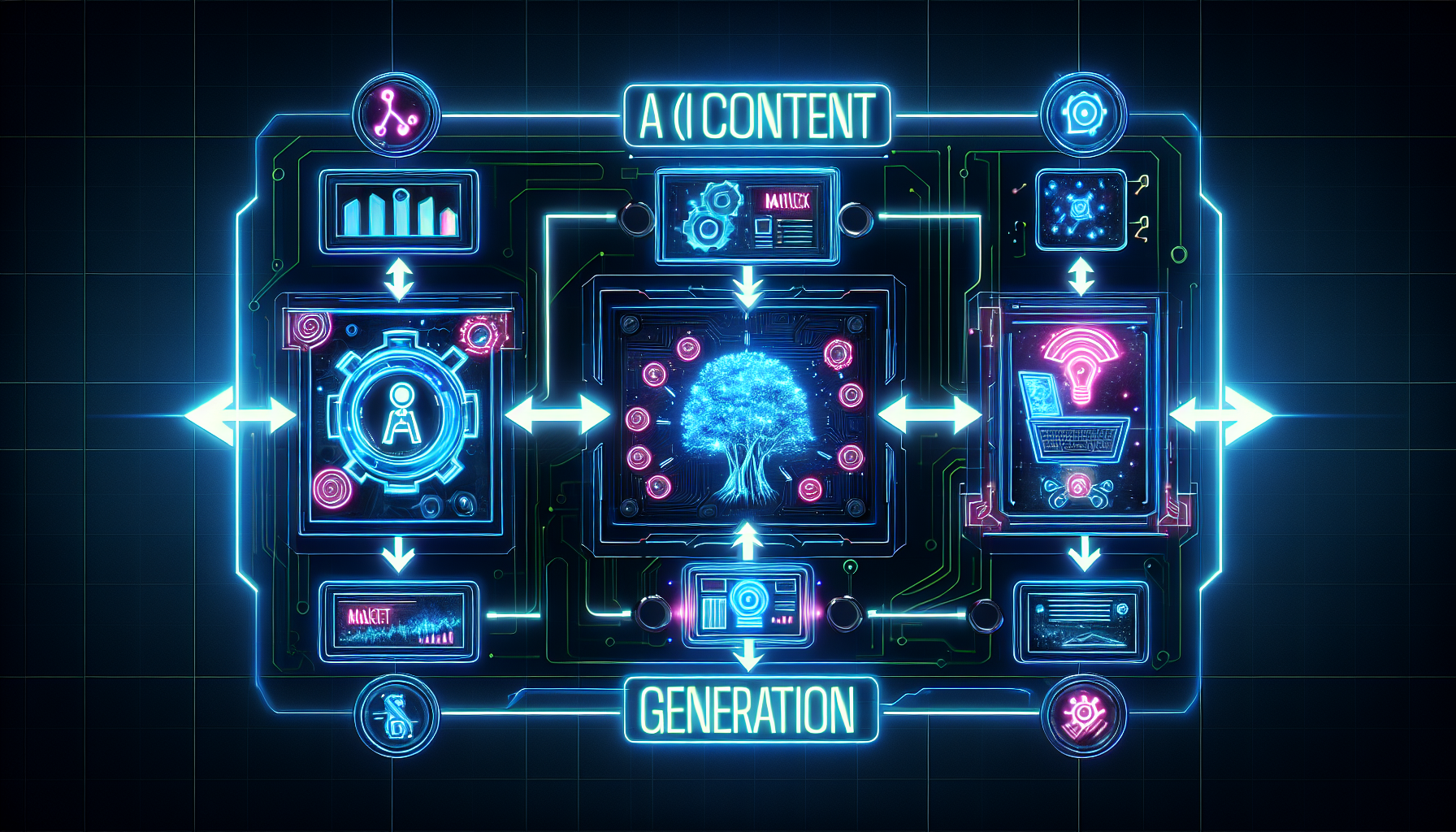2025 AI Content Creation Guide for Marketers

Discover the future of marketing with our 2025 guide to AI content generation. Learn how to harness AI tools for compelling, effective campaigns that resonate. We cover the latest tech, strategy integration, and ethical considerations. Stay ahead in your marketing game!
Table of Contents
- Introduction
- Prerequisites/Requirements
- Step-by-Step Instructions
- Common Pitfalls to Avoid
- Advanced Tips
- Conclusion with Next Steps
Introduction
In the rapidly evolving field of digital marketing, Artificial Intelligence (AI) has become a cornerstone for creating engaging, personalized content at scale. By 2025, AI content generation tools have advanced significantly, allowing marketers to craft highly effective campaigns with efficiency and precision. This comprehensive guide will lead you through the necessary steps to effectively harness AI for content generation, tailored specifically for marketing professionals. By the end of this tutorial, you will learn how to integrate AI seamlessly into your marketing strategy, enhance content relevance, and drive engagement while saving time and resources.
Prerequisites/Requirements
Before diving into the AI-driven content generation process, ensure you have the following:
- Basic Knowledge of AI and Machine Learning: Understand the basics of AI technologies and how they can be applied to marketing.
- Access to AI Content Generation Tools: Several platforms are available by 2025; examples include OpenAI’s GPT-4, Google's BERT 2.0, and Adobe's Content AI.
- Data Preparation: Have access to historical data, including past marketing campaigns and audience interactions, which will train the AI models.
- Clear Marketing Goals: Define what you aim to achieve with AI-generated content, whether it's increasing engagement, generating leads, or boosting sales.
Step-by-Step Instructions
Step 1: Choosing the Right AI Content Generation Tool
Select a tool that best fits your marketing needs based on capability, ease of use, integration options, and budget.
- Do: Opt for tools with extensive support and community.
- Don't: Go for the cheapest option without evaluating its effectiveness.
Step 2: Data Preparation and Training
AI models require training with relevant data to generate valuable content.
- Do: Cleanse and organize your data for better model training.
- Don't: Use outdated or irrelevant data as it can lead to poor content quality.
Step 3: Setting Up the AI Content Generator
Configure the chosen AI tool to align with your specific marketing goals.
- Do: Customize the settings to match your target audience’s preferences.
- Don't: Ignore the importance of fine-tuning the parameters for different content types.
Step 4: Generating and Refining Content
Create initial content drafts using AI and refine them to ensure they meet your standards.
- Do: Regularly review and tweak AI-generated content.
- Don't: Solely rely on AI for the final content without human oversight.
Step 5: Evaluating AI Content Performance
Measure the performance of AI-generated content to refine future strategies.
- Do: Use analytics to assess content effectiveness.
- Don't: Ignore negative feedback; use it constructively to improve the content.
Common Pitfalls to Avoid
While AI can significantly enhance content creation, marketers should be aware of these common pitfalls:
- Over-reliance on AI: AI should be used as a tool to augment human creativity, not replace it.
- Ignoring Audience Feedback: Continuously gather and incorporate user feedback to tailor content better.
- Lack of Regular Updates: AI models can become outdated; regularly update them with new data and algorithms.
Advanced Tips
For those looking to further enhance their AI content generation strategy, consider the following advanced tips:
- Integrating Multimodal AI: Utilize AI tools that support text, images, and video to create rich multimedia content.
- Experimenting with AI-driven A/B Testing: Use AI to automate and optimize A/B testing for different content versions.
- Advanced Personalization: Leverage AI for deep learning insights into user preferences to highly personalize content.
Conclusion with Next Steps
By embracing AI content generation, marketers can not only streamline their workflows but also achieve higher engagement and conversion rates. As you move forward, continuously explore new AI tools and technologies that emerge in the market. Keep experimenting with different strategies and remember that the ultimate goal of AI in marketing is to enhance human creativity and efficiency. The next steps should involve deeper integration of AI across different facets of digital marketing, continuous learning, and staying updated with the latest AI advancements.
Frequently Asked Questions
What are the key tools for AI content generation in 2025?
In 2025, the key tools for AI content generation include advanced neural network-based platforms like GPT-5, enhanced versions of SEO optimization tools such as Clearscope and MarketMuse, and data analytics tools that integrate directly with content management systems to provide real-time insights for content optimization.
How can marketers personalize AI-generated content for different audiences?
Marketers can personalize AI-generated content by leveraging data analytics to understand audience preferences and behaviors. Utilizing AI tools that adapt content based on user interaction patterns and demographic data ensures that each piece of content resonates with its intended audience, enhancing engagement and conversion rates.
What are the ethical considerations in using AI for content generation?
Ethical considerations in using AI for content generation include ensuring the accuracy and non-biased nature of the content, protecting user privacy when collecting data for content personalization, and being transparent about the use of AI in content creation processes to maintain trust and credibility with the audience.
How does AI content generation impact SEO strategies?
AI content generation significantly impacts SEO strategies by enabling the creation of highly optimized, relevant, and personalized content at scale. AI tools can analyze vast amounts of SEO data to identify trends and keywords that can improve search engine rankings. Moreover, AI can automate the optimization of meta tags, images, and other SEO elements, making it easier to maintain high SEO standards across all content.
